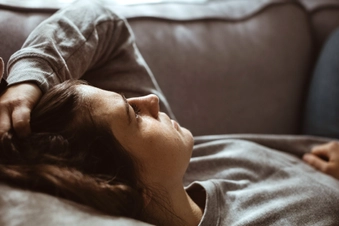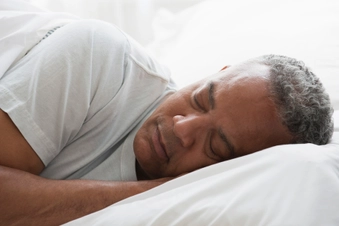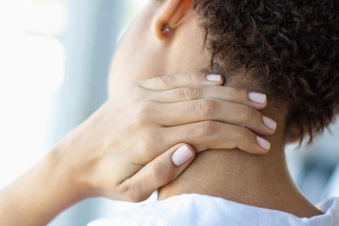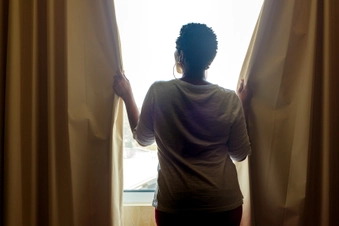Bouncing Back After a Migraine

What Is a Migraine 'Hangover'?
There’s a final stage to migraine headaches that you may not have heard much about. It’s called migraine postdrome or migraine “hangover." That's an apt description of how you might feel once the headache eases: achy, mentally foggy, and physically drained. Some people, though, feel energetic or happy. Around 80% of migraines are capped off by such symptoms. For many, they last about 6 hours. But they can go 24 hours or more.

Keep Up the TLC
Don't rush back to your usual activities while you’re in the postdrome phase. When you try to power through, your body doesn't get the dose of post-migraine care it craves. It could even set you up for another migraine. While you're in recovery mode, avoid stressful activities and strenuous exercise. And show yourself some loving kindness.

Soothe Stress
When you're on the mend from a migraine, make time for calming activities that relieve stress. They'll help you feel better now and may even prevent another headache. What to try:
- Relaxation techniques like meditation or breathing exercises
- Gentle movements like yoga or stretching
- Bodywork like massage therapy or self-massage

Get Some Rest
Fatigue is often a symptom of migraine postdrome. Not only is your body recovering, but it may have been hard to sleep when your head was pounding. There's no need to snooze the day away when you're on the mend from a migraine. But take a nap if possible. Then get back to a healthy sleep schedule as soon as you can, especially if sleep loss is a migraine trigger for you.

Stay Hydrated
Research has shown that people with migraine who regularly drink water tend to have less painful, less frequent, and shorter headaches. It’s just as important to hydrate after a migraine as it is before and during. In fact, increased thirst is often a symptom of migraine postdrome. So go refill that water bottle.

Ease Your Aches
Another common postdrome symptom is a stiff, painful neck. If you’re feeling the ache, experiment with an ice pack and a heating pad to see which brings more relief. It's a good idea to avoid screen time during migraine recovery. But if you must, avoid straining your neck further by leaning over your laptop or looking down at your phone for long periods.

Keep the Lights Low
Here's yet another reason to keep your devices in sleep mode: You may still be extra-sensitive to light (and possibly sound) during the postdrome phase of a migraine. Close the curtains and dim the lights for as long as you need to, especially if bright lights are one of your migraine triggers.

Be Cautious With Caffeine
Caffeine is a double-edged sword when it comes to migraines. Sometimes it can help ease migraine pain. But caffeine can also be a migraine trigger. The same is true during the postdrome phase. So sip coffee, tea, or caffeinated sodas with caution. And note how you react for the future.

Grab a Fork
If you lost your appetite during your migraine headache, it might come roaring back in the postdrome phase. Try to eat frequent, small, and nutritious meals. But as long as they aren’t migraine triggers for you, it’s OK to indulge in some soothing comfort foods. As much as possible, stick to regular mealtimes to help prevent future headaches.

Keep a Hangover Diary
Think of your recovery period as an extension of the migraine headache itself. Create a postdrome section in your migraine journal. Include all your symptoms, how long each one lasts, and what, if anything, eases them. You and your doctor can look for patterns to help you prepare for the next migraine hangover.

Can You Treat a Migraine Hangover?
The best way to stop migraine hangovers is to prevent migraines themselves. Stick to healthy habits like regular sleep and meal schedules. And talk to your doctor about whether preventive migraine medications might be right for you. Pain relievers like ibuprofen or naproxen might help with postdrome head or neck pain, but ask your doctor first. Overdoing them could lead to rebound headaches.
Show Sources
IMAGES PROVIDED BY:
1) 10'000 Hours / Getty Images
2) Maskot / Getty Images
3) d3sign / Getty Images
4) Jose Luis Pelaez Inc / Getty Images
5) vitapix / Getty Images
6) Sam Edwards / Getty Images
7) davidf / Getty Images
8) Westend61 / Getty Images
9) Alexander Spatari / Getty Images
10) Karl Tapales / Getty Images
11) John Fedele / Getty Images
SOURCES:
Migraine Trust: “Postdrome: The migraine hangover,” “Stages of a migraine attack.”
Neurology: “The migraine postdrome.”
Clinical Neurology and Neuroscience: “The migraine postdrome: Clinical characterization, influence of abortive treatment and impact in the quality of life.”
Migraine & Headache Australia: “Migraine.”
American Migraine Foundation: “Migraine Hangover,” “The Science of Migraine – How to Deal With Postdrome,” “Caffeine and Migraine.”
Sleep Foundation: “Can a Lack of Sleep Cause Headaches?”
Journal of Clinical Neuroscience: “Association of drinking water and migraine headache severity.”
Cleveland Clinic: “How to get rid of a stiff neck.”
Harvard Health: “Struggling with migraine hangovers? Read this.”
Mayo Clinic: "Medication Overuse Headaches."